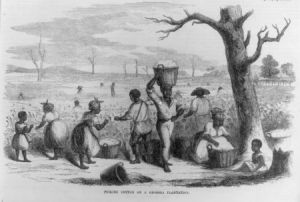 With the Confederate economy in a free-fall, many Baptist pastors, dependent upon the financial goodwill of their church members, struggle to survive.
With the Confederate economy in a free-fall, many Baptist pastors, dependent upon the financial goodwill of their church members, struggle to survive.
Prior to the war, Louisiana was home to some of the wealthiest counties in the entire nation, thanks to the state’s fertile soil that produced an abundance of cotton and sugar cane, soil tilled by hundreds of thousands of African slaves who represented enormous riches in (human) property. Now, inflation has rendered currency worth little more than the paper on which it is printed, while there is so much cotton sitting in bales (due to the inability to export it for processing into clothing) as to make the crop almost worthless.
A commentary published in the Louisiana Baptist newspaper (and republished in other Southern Baptist papers) offers a solution to help maintain pastoral support despite the national financial duress.
The Scriptures make this a duty, not a mere gratuity, hence Christians should make arrangements to liquidate their obligations just as they do their doctor’s bills and their store accounts. They should give according as the Lord has prospered them. If at this time, they cannot pay money, let them pay part money and part in provisions or goods; and if not in either of these, let cotton planters throw together the amount of their usual donations in cotton, at a rate at which a Merchant will take it for goods, and let some one bale it, and put the Pastor’s name on it, that he may be enabled to meet his obligations with it. If sugar planters cannot pay money, let them pursue the same course with sugar. In this way church members may do their duty and Pastors be sustained. When they can pursue these plans and refuse, they will show that they desire to take advantage of the crisis to evade doing their duty.
Public criticism of large planters (slaveowners), while growing, is relatively muted. Such persons, while representing only a tiny fraction of the Confederacy, yet hold the financial purse strings of the nation.
Source: “Ministerial Support,” Biblical Recorder, January 8, 1863, republished from the Louisiana Baptist (link)


